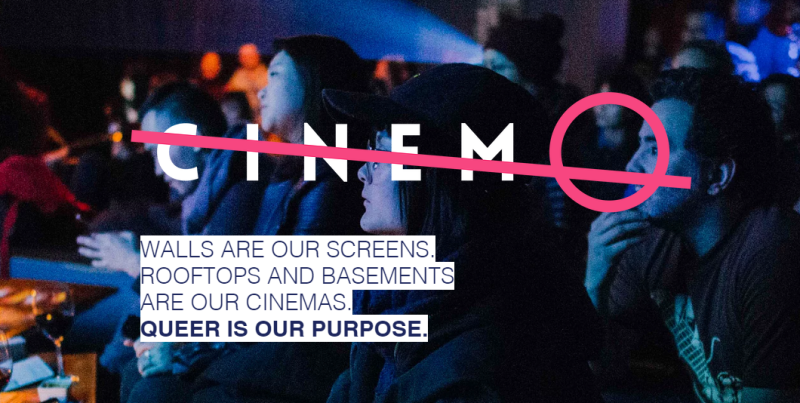Recently the Beijinger had the opportunity to speak to Matthew Baren, co-founder and editor-in-chief of Shanghai-based Cinemq, a collective of Chinese, British, and American queers with a passion for cinema, about the differences between the Shanghai and Beijing queer scenes, and their favorite queer films.

Who is the Cinemq team made up of?
Cinemq is a small collective of Chinese, British, and American queers (we currently have six active members). We’re a mix of film festival organizers, filmmakers, designers and DJs, glitter lovers, and queer disco freaks. We all give our time for free.
How did you guys get started? What gave you the idea?
Myself and Alvin Li, the other co-founder, started Cinemq as a screening and party series to build an audience for ShanghaiPride Film Festival (which we also launched in 2015). Our thinking was that whilst Pride is a great organization which does a lot for the community, there are a lot of people who aren’t reached by their events or who don’t feel represented by them. There also wasn’t any kind of queer film organization in Shanghai at the time. Our idea was to create a space for fringe queers, people of non-distinct sexuality or gender, for people who wanted to be challenged by what they saw on a night out whilst still having fun. Our first event squeezed 60 people into a tiny rooftop shed in Xuhui. Two years later we have an established reputation in the city, host screenings and parties at some pretty exciting spaces. In the past few months, myself and editor Will Dai have launched a zine on WeChat and online, publishing weekly articles on anything queer screen culture (ID: cinemq) – film, TV, web, porn – with a focus on China and East Asia.
Do you see any difference between the Shanghai and Beijing queer film scene? And with other, smaller cities?
People in Beijing have more patience! I’ve been to screenings in Beijing that last for eight hours, and the audience will sit through the whole thing. In Shanghai, people will start to walk out of any screening that lasts more than 90 minutes.
I think there are more people in Beijiing who would readily call themselves activists, and who pour themselves into film as a way of tackling specific issues. Shanghai LGBT organizations, by comparison, are more focused on promoting an idea of LGBT identity. In Shanghai, more often it is seen as enough just to show an LGBT film, whereas in Beijing, organizers are more likely to recognize that film is a tool, a means by which you can ask challenging questions about identity and society. You see this reflected in the style of filmmaking in both cities also.
There’s no right or wrong way to do things, and there’s a reason for the differences (for example, Beijingers face stricter oversight, and so are more aware in their daily lives of social challenges than the comparatively freer Shanghai). The important questions to ask as a person who works in queer film and filmmaking anywhere are, “Why am I doing this, and am I achieving my goals?” I would argue that the potential role queer film has to play in advancing the rights and status of our community here is significant enough that it’s not good enough just to say, “I put on a film tonight,” or, “I shot a documentary.” You really need to challenge yourself to best meet and represent audiences.
Personally, what’s your favorite queer film, and your favorite Chinese queer film?
Oh man, hard to chose. I’m a huge fan of Shanghai Panic (directed by Andrew Cheung) and Soundless Wind Chime (directed by Kit Hung), both of which play around with ideas of queer utopia.
In the world of short film, the Beijing filmmaking duo Masamojo made a great documentary called A Straight Journey: Days & Nights in Their Kingdom, an existential journey into the lives of 22 queer people around China. And A City of Two Tales (directed by Tony Lin, a Beijing native), a documentary portrait of two older gay men in Hong Kong, and their different experiences of sex.
Any cool events coming up?
We hosted our 15th edition of Cinemq recently, screening films around the theme ‘Kink.’ We’ll have a few screenings over the next few months (see website for events listings), and we’re talking about putting on a mini arts festival on gender non-binary later in the year.
What do you see for your platform in the future?
I hope that we can grow into a serious platform and resource for discussion around queer Chinese and East Asian identity through screen culture. People internationally are starting to sit up and pay attention to the voices within this community, but there is still a long way to go. I don’t expect Cinemq to be the driving force behind any great change, but I hope that we can be an important part of the wider movement. And I expect we’ll be doing this whilst covered in glitter, wrapped trashy in furs and fishnets, and watching films.
— This article originally appeared on the Beijinger.





